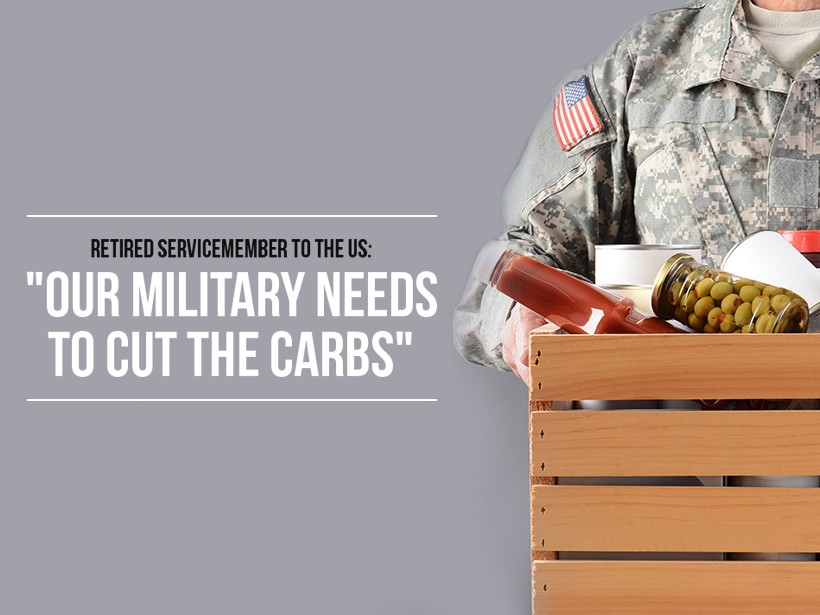America is facing a growing problem–as young people become larger and obesity rates rise, more young adults are being deemed “unfit to serve” in the United States armed forces. One retired U.S. Air Force Special Operations Combat Controller, Steve Barrons, has a message to the military: “If you want more fit soldiers, you need to cut the carbs and update your picture of a healthy diet.”1
A growing problem for patriotism
If you are like most people, your image of a United States armed forces member is one of a man or woman at the peak of fitness. However, growing rates of obesity have caused many to speculate that America's youth are becoming “too fat to fight,” with a growing percentage of teenagers and young adults being labeled “physically unfit” for service due to their weight.2 With the national childhood obesity rate growing from 4.8 percent in 1974 to 12.1 percent in 2010, some experts are raising concerns that the security of the country may soon be at risk due to a generation that is largely unqualified to serve.3
Barrons has seen firsthand how the effects of diet can change the quality of both physical fitness and service. Barrons lamented that in the last years of his service, it has become “increasingly difficult” to recruit candidates that were fit to serve in crucial military positions.1 Barrons has offered a solution that he hopes will help secure the future of America–a cultural cutting of carbohydrates.
Are high carbs contributing to military unfitness?
Barrons noted in his op-ed piece that the 150 million meals that the United States' military serves to its personnel each year are based on the “government-advised high-carbohydrate diet.”1 This standard of dietary recommendations can be visualized by most as the “food pyramid,” which asserts that the “base” of a healthy diet should be laden with grains, rice, and other starches. Unfortunately, the most recent body of research now suggests that the food pyramid that was taught in schools throughout the early 2000's is now largely outdated.4 A new food pyramid has even been introduced in schools in an attempt to curb the unfair demonization of fats and encourage more low-calorie vegetable consumption.5
Barron argues that this outdated research is harming recruits and members of the military, many of whom have no other option than to eat the meals that are served to them.
“The government must get it right in the next round of guidelines so that our troops get the nutrition that will make them fit and ready to serve.” Barron wrote. “Otherwise, the dangerous trajectory of less-healthy service members and unfit recruits will only get worse.”1
NUTRITIONAL DISCLAIMER
The content on this website should not be taken as medical advice and you should ALWAYS consult with your doctor before starting any diet or exercise program. We provide nutritional data for our recipes as a courtesy to our readers. We use Total Keto Diet app software to calculate the nutrition and we remove fiber and sugar alcohols, like erythritol, from the total carbohydrate count to get to the net carb count, as they do not affect your blood glucose levels. You should independently calculate nutritional information on your own and not rely on our data. The website or content herein is not intended to cure, prevent, diagnose or treat any disease. This website shall not be liable for adverse reactions or any other outcome resulting from the use of recipes or recommendations on the Website or actions you take as a result. Any action you take is strictly at your own risk.
- Keto Drives Increased Calorie Burn - July 11, 2019
- New High-Protein, Low-Sugar Greek Yogurt Hits Market - April 1, 2019
- Can Going Low-Carb Fight Back Fat? - December 4, 2018































